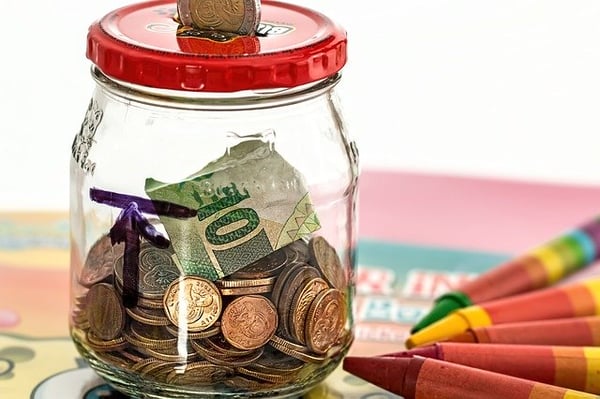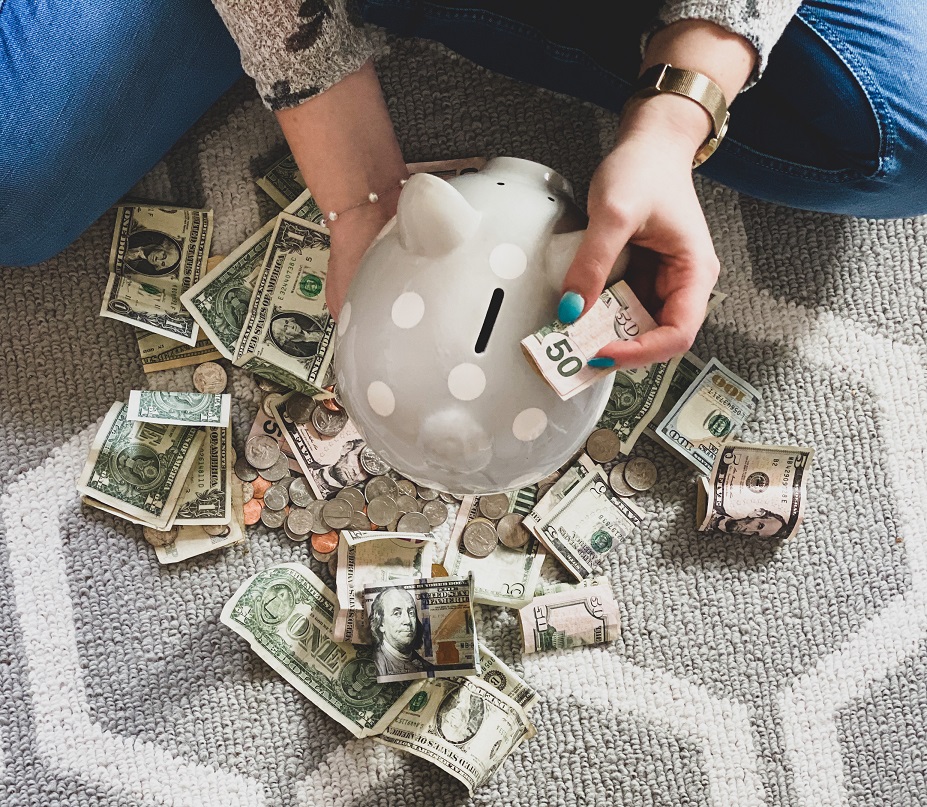This is the emergency message I received from Maria:
“Can you help me? I think my host mom is crazy. She yelled at me for no reason. I don’t know what to do!”
Maria is not her real name, and she’s not the first exchange student to send me a message like this. But I was working at Maria’s sending agency in Spain, so it was my job to discover the truth: why did this host mom lose it for “no reason”?
“Yes, I lost it,” confessed host mom. “But it was the last straw! Maria has been making us late every morning. She forgot to do her chores yesterday - again! So, when I saw the dishes in the sink, that was it!”

Maria didn’t realize that she and her host mom shared an invisible bank account, an Emotional Bank Account.
- Every time she was late in the morning, she made a withdrawal.
- Every time she didn’t do her chores? Another withdrawal...
- Now, she was overdrawn, in the red, maybe even bankrupt!
Maria didn’t understand that host moms don’t just snap. When Mom’s Emotional Bank Account is full, she will be much more understanding when she finds dirty dishes in the sink - and she'll start by finding out why. But when she’s on empty - look out!

But, how could I help Maria to see this?
Fortunately, a brilliant metaphor saved the day. Many years ago, I discovered the Emotional Bank Account in The Seven Habits of Highly Effective People. Let me show you how I used it to teach Maria how to get rich - in relationships.
And you can use this for teaching your teens too!
How Does The Emotional Bank Account Work?
When Maria’s face popped up on my phone screen her eyes were red and puffy. Tears were streaming down her cheeks…
“It’s not fair,” she complained. “I’m a good person. I follow the rules. My host mom shouldn’t get mad like that…” It was her turn to talk first, and she told me her side of the whole sad story.
Then it was my turn. “Can I share a simple idea with you, Maria?” She nodded her head… So, this is what I said:
“But I’m very nice to my host mother,” she protested. “I do lots of nice things for her, but she doesn’t appreciate that.”
So, we decided to make a list of all the nice “deposits” she had made in her host mother’s emotional bank account lately:
Maria’s list:
- Made a Spanish omelette for dinner
- Set the table
- Studied hard
- Made her bed before school
- Found a ride home from soccer practice
- Said please and thank you a lot...
What was wrong with Maria’s investment strategy? Why wasn’t she enjoying dividends? Why wasn’t her host mom happy?

I needed to help Maria understand that making deposits in an emotional bank account can be tricky...
Emotional Bank Account: How to Make Deposits
“You’re doing a lot of nice things, Maria,” I recognized. “But let me ask you a question. Are these the things your host mom expects? Are these the things she really cares about?”
“She loved my Spanish omelette!” she insisted. “When I cook in Spain my mom is so happy…”
Maria needed to understand a few things about deposits:
- A deposit is what the other person expects.
- Too many withdrawals and others don’t notice your deposits.
- A big deposit in Spain (an omelette) could be small in the USA.
Bottom line? Maria needed to activate her curiosity.
- What were host mom’s favorite deposits?
- In what ways are deposits in the USA different from those in Spain?
- How could she make better investments?
After some thought, Maria realized that her host mom was looking for deposits like these:
- Be punctual every morning
- Get chores done without reminders
- Spend time with the family instead of hiding out in her room
Maybe if she made enough of these deposits, her host mom could sit back and savor her Spanish omelette…
Emotional Bank Account: Understanding Withdrawals
“Why does my host mom get so angry if I’m just two minutes late in the morning?” Maria just couldn’t get it.
After 25 years living in Spain, I got it!
“Maria, this is a cultural difference. You can arrive even 10 or 15 minutes late in Spain and no one seems to care. But in the USA, this is a big, huge withdrawal from an emotional bank account - the first time. The second time it’s even bigger!”
Maria’s eyes were about to pop out of her head. “I didn’t realize that.”

We needed to cover a few points about withdrawals:
- A withdrawal is what the other person considers a withdrawal.
- The other person decides how big the withdrawal is.
- Something normal in one culture could be a withdrawal in another.
Maria was really worried now, “How can I know if something is a withdrawal for my host mom? What if she keeps getting mad at me?”
How could she know what was in her host mom’s heart?
It was time to talk about communication!
Using the Emotional Bank Account to Communicate
Like every teenager, Maria needed help learning how to communicate with her host family. She was a little shy about sharing the Emotional Bank Account metaphor, but finally, she decided to give it a try.
Soon, the whole family was talking about “deposits” and “withdrawals”. Instead of pointing fingers or criticizing each other, they focused on their balances:
- A high balance = good feelings, happiness, fun, forgiveness
- A low balance = bad feelings, irritation, anger, resentment
Host mom shared her favorite deposits - reserving the right to keep adding to the list, of course:
- Punctuality
- Chores done without asking
- Less grumbling and more gratitude
- More time in common areas instead of bedrooms
Maria was brave enough to explain that she also needed some deposits in her account:
- More communication about expectations
- Help understanding cultural differences
- Forgiveness for her mistakes, and a great big hug
Thanks to a simple metaphor it was easy to talk about tough topics. The Emotional Bank Account made it possible to share very personal feelings in a safe, structured way.
The International Emotional Bank Account
Soon Maria’s local coordinator heard about her Emotional Bank Account pow-wow with her host family. “Tell me more!” She was all ears.
Then, something clicked! At the next exchange student potluck, the coordinator presented an Emotional Piggy Bank and asked each student to share their experiences.

Surprise, surprise! Many students reported deposits in their home country that were withdrawals in the USA:
- Slurping soup, in some Asian countries
- Studying non-stop, in countries where that makes parents proud
- Not saying thank-you to family, in India and other places
- Giving gifts of foods that tend to shock Americans
- Lots of technology time, a sign of progress in some places
- Dressing sexy by US standards, seen favorably in some countries
- Beating around the bush, as in many Asian cultures
- Expecting a constant exchange of small favors, assistance and support, as a way of bonding in some countries
Everyone learned a lot about relationship building, both at home and abroad. In fact, they decided that the Emotional Bank Account requires different currencies in different countries. In the same way you need euros in Europe and yen in Japan, you needed dollars for happy relationships in the USA.
Teaching Teens How to Get Rich - in Relationships
As I worked with Maria, I tried to remember what it was like to be a teenager: You’re not a kid anymore. But you’re not an adult. You feel like you know so much. But you still have so much to learn…

Teaching teens how to manage relationships is one of the greatest gifts we can give. Few of them will become millionaires, but each one can get rich - in relationships.


